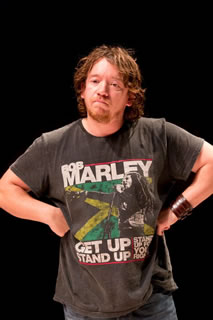The Distance - At The Orange Tree Theatre, Richmond
If you missed The Distance a year ago, with its exquisite questions about friendship and responsible parenting, catch up now says Liz Vercoe
So, is it a fact of life that women are natural mothers and nurturers? Or not? What if they discover, after having children, that they are in such alien territory they want to get out. Are such women bad? Or mad? Or simply misguided... hoodwinked by a dominant partner, perhaps? Or are they possibly right to act on it?
This is the conundrum two friends, bossy-boots Kate (Charlotte Lucas) and ditsy Alex (Charlotte Emerson), find themselves facing – or would do if they could see the world from any perspective other than their own – when their old chum Bea (Michelle Duncan in the role Helen Baxendale created last year) tips up from Australia asking for help but is not specific about what sort.
The attempts of the two to rekindle their old easy friendship with the third, soon reveal that more crucial stuff than years and mileage has intervened to scatter them in different directions. Life has certainly tested each of their coping mechanisms and the end results haven't always been pretty.
Written by Deborah Bruce, the excellent script is sharply funny one second and prods as precisely as a fencing foil the next. Gradually the back story to Kate's constant nagging of her long-suffering husband Dewi (Daniel Hawksford, returning to play this former pop-star-with-a-history) is revealed alongside the central plot. With his spliff-smoking brother Vinnie (Steven Meo) banished to the garden shed, where Alex also occasionally takes refuge, theirs is a family saga in many ways richer than Bea's inner struggle with her husband and two small boys back in Melbourne.
 If there's a criticism to be made, it's that Bea's turmoil remains so internal and invisible it's quite hard for the audience to know where she's coming from. We see, in two flashback scenes, how she met her future husband Simon (Timothy Knightly, also reprising his role from last year, perfectly captures the requisite niceness, confidence and humour that makes for instant attraction). But we are none the wiser as to the whys. We learn little about what makes her tick other than she appears both drawn to and repelled by her own spontaneity. It's the same in the present. She wails that she's "lost", but so are we as she is so convincingly numb.
If there's a criticism to be made, it's that Bea's turmoil remains so internal and invisible it's quite hard for the audience to know where she's coming from. We see, in two flashback scenes, how she met her future husband Simon (Timothy Knightly, also reprising his role from last year, perfectly captures the requisite niceness, confidence and humour that makes for instant attraction). But we are none the wiser as to the whys. We learn little about what makes her tick other than she appears both drawn to and repelled by her own spontaneity. It's the same in the present. She wails that she's "lost", but so are we as she is so convincingly numb.
When teenager Liam (Joshua Sinclair-Evans) turns up, plucked from his bed at home in London because his mum Alex had panicked that he was too near the 2011 riots, he brings a youthfully straightforward common sense to the party. But even he negotiates Bea as warily as a cat walking round a clockwork toy that might go off at any minute. It's his needs that suggest to us that, if she's not depressed, Bea might not have a maternal bone in her body after all.
Steven Meo as Vinnie
|
Joshua successfully delivers all the nuances of one of the best scenes of the play when, alone with Bea, and talking about his absent father, he reminds us all what it is to be dependant on parents for love and guidance and identity. And in the end, it's this exchange, more than any between the mystified "grown ups", that makes sense of Bea's ultimate decision. |
Liz Vercoe
Images:
Johan Persson.
December 4, 2015
Related links
|